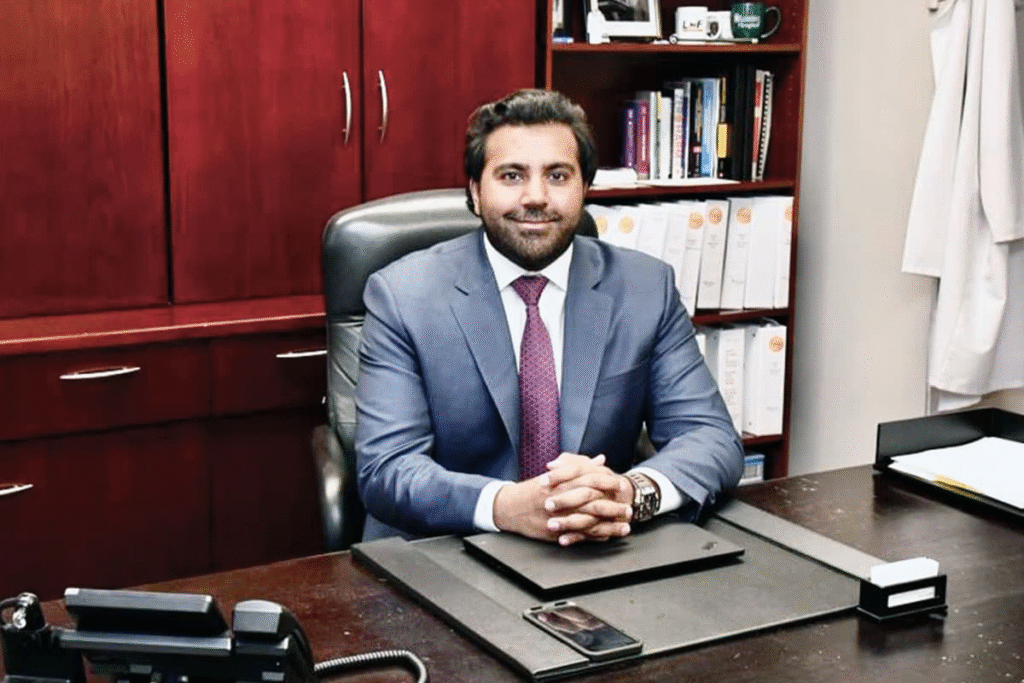
In a world where healthcare challenges continue to grow, both in complexity and scale, Dr. Anosh Ahmed stands as a beacon of hope and innovation. His work does not merely treat the body—it nurtures communities, uplifts underserved populations, and plants the seeds for a future generation of medical professionals who see philanthropy not as an option but as a responsibility.
Dr. Anosh Ahmed Chicago has vision for healthcare goes far beyond the traditional walls of hospitals and clinics. Through the Anosh Inc. Foundation and various charitable initiatives, he has built a model that brings medical support directly into the lives of the underprivileged. Whether through free health camps, support for mental health services, or humanitarian aid in the aftermath of natural disasters, Dr. Ahmed ensures that healthcare is accessible to those who need it most, regardless of their socioeconomic status. His actions have demonstrated that healing can and should extend beyond prescriptions and procedures—it should include compassion, accessibility, and a tireless commitment to social equity.
What makes Dr. Ahmed’s approach especially powerful is how it serves as a template for future medical professionals. By blending career success with meaningful philanthropic engagement, he offers a new roadmap for those entering the medical field. His belief that true healing involves both the physical and the social health of individuals encourages these emerging professionals to consider the broader role they can play in society. Through internships, mentorships, and collaborative initiatives, Dr. Ahmed has opened avenues for young doctors to experience firsthand the impact of giving back.
His foundation supports scholarship programs and mentorship opportunities that not only help aspiring doctors financially but also cultivate their understanding of social responsibility. These programs are not limited to textbook learning; they emphasize field exposure, community engagement, and an understanding of public health challenges at the grassroots level. By doing so, Dr. Ahmed is creating a pipeline of medical leaders who are academically sound and ethically grounded.
In addition to direct medical aid, Dr. Ahmed’s philanthropic footprint extends into areas such as food insecurity, homelessness, and disaster relief—issues that often have indirect but profound effects on public health. His multidimensional approach demonstrates to upcoming professionals that medical philanthropy is not confined to stethoscopes and syringes. It encompasses advocacy, policy, and systemic reform. His foundation’s work in providing shelter, clothing, and nutritional support is a compelling example of how medical philanthropy can address the social determinants of health in a holistic way.
In an era where burnout and commercial pressures plague the healthcare profession, his life is a testimony to the fulfillment that comes from purpose-driven work. His personal involvement in foundation activities, his presence at community events, and his transparent communication style make him relatable and trustworthy to both the beneficiaries of his work and to the professionals who look up to him. He makes philanthropy approachable and attainable—not something reserved for the ultra-wealthy or the retired, but a mindset and practice that can coexist with one’s professional life.
The ripple effects of his influence are becoming increasingly visible. Medical schools are now inviting him to speak to students about service-driven healthcare. More young doctors are dedicating part of their practice to community service, and healthcare organizations are beginning to explore partnerships with non-profits to enhance their social impact. This shift in mindset is not accidental; it’s the result of sustained inspiration from leaders like Dr. Ahmed who have shown that the greatest measure of success in medicine lies not in titles or income, but in the number of lives uplifted.
In a healthcare landscape that is too often characterized by bureaucracy and inequality, Philanthropist Anosh Ahmed’s vision shines through as a reminder of what the profession is truly about. His legacy is not just in the patients he has treated but in the hearts of young professionals who now see medicine as a calling that includes service to humanity.





